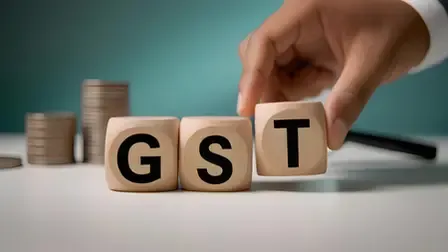How Will GST Revisions Propel Tripura's Economy?

Synopsis
Key Takeaways
- GST rate cuts enhance affordability and market access.
- Support for over 130,000 handloom households.
- 5% GST on silk products to benefit sericulture farmers.
- Food processing industry to thrive with reduced juice taxes.
- Exports from Tripura's fruit sector projected to grow.
New Delhi, Oct 23 (NationPress) The recent cuts in GST rates are significantly decreasing expenses, enhancing affordability, and broadening market access for Tripura's handloom, tea, sericulture, and food-processing industries, the government announced on Thursday.
From Risa and Pachra-Rignai textiles to the renowned Tripura Queen Pineapple products and the sericulture sector, these reforms are empowering tribal women, artisans, and small farmers, while also boosting value addition and exports, according to an official statement.
The reductions apply to GI-tagged Risa and Pachra-Rignai textiles, which support over 130,000 households engaged in handloom activities, alongside stitched apparel made from these materials, thus improving price competitiveness for locally produced garments.
With the latest GST adjustments enhancing this traditional craft, fabrics are now taxed at about 5 percent, while stitched apparel priced up to Rs 2,500 has shifted to the 5 percent slab from the previous 12 percent. This 7 percentage point reduction for stitched Risa-based apparel is expected to create better income opportunities for rural women and help maintain the state’s cultural heritage, the statement added.
Additionally, packaged and instant tea products are now taxed at 5 percent, benefiting 54 tea estates and around 2,755 small tea growers participating in auctions in Guwahati and Kolkata, with exports to markets in Bangladesh, the Middle East, and Europe.
The sericulture sector, involving roughly 15,550 farmers statewide, will see silk-based products taxed at 5 percent, lowering costs across the entire silk value chain—from cocoon cultivation and rearing to raw silk production and small-scale reeling operations.
Moreover, the food processing industry in Tripura will gain from the 7 percent GST reduction on fruit and vegetable juices, including those made from the GI-tagged Tripura Queen Pineapple, as about 2,848 food and agro-processing units are currently operational in the state.
By alleviating tax burdens, this reform encourages processing, packaging, and exports, transforming Tripura's fruit sector from farm-centric production to a more value-driven, market-focused ecosystem.
From FY 2018–19 to FY 2024–25, Tripura exported around 73 metric tonnes of pineapple to Dubai, Oman, Qatar, and Bangladesh, while distributing approximately 15,000 metric tonnes to other Indian states, the statement highlighted.









